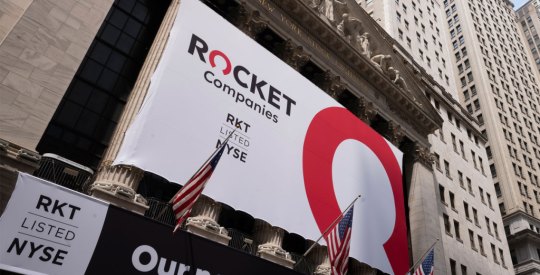As I recently listened to Neil Young proclaim in his classic song that “Rock-n-roll will never die,” I couldn’t help but wonder about wholesale lending. Although there’s a good chance Neil doesn’t know the difference between a yield spread premium and a prepayment penalty, in the same way his career was at a critical point when the song was originally released, wholesale lending now finds itself at a similar crossroads. Having evolved from being a relatively obscure segment of the business to a driving force for the industry, you have to wonder what the broker will look like years from now. Is it even possible that wholesale lending will cease to exist? One look at the recent trends could certainly make you think that way. About one-half of the top wholesale mortgage companies from just two years ago, regardless of product type, have gone out of business or ceased operating in the wholesale arena. If the pressures from the secondary market weren’t bad enough, the wholesale business model continues to look unappealing. Between the tight warehousing margins and the risk of fraud from writing third-party business, it is no wonder wholesale lenders have been dropping like flies. Which brings us back to the question –– will wholesale lending disappear entirely? While anything is possible, I’d bet against it. For the record, if Congress passes a predatory lending bill that eliminates yield spread premium, I’m changing my answer. Without YSP, the game is over. Lights out. I don’t think mortgage brokers could survive in such an environment. However, since the current bill passed in the House of Representatives keeps YSP in place for the most part, there seems to be little risk that brokers will be vaporized courtesy of Congress in the near future. The main reason mortgage brokers will survive for the long haul has to do with the cost of acquiring business. The cost to obtain a new retail consumer hasn’t changed that much over the years. It’s easier to enter the mortgage business on the B2B side than it is to go direct to the consumer and when the market recovers, which it will, new lenders will form. When they do, many will choose to enter on the wholesale side. The opportunity for the independent broker to carve a niche in his local market will also likely never go away. Since the mortgage industry has managed to take the most important financial decision of a person’s life and make it one of the most confusing, a certain percentage of consumers will need to have their hand held. As long as the broker is allowed to earn a living and not undertake any significant liability in the process, they’ll survive any changes Congress throws at them. (I’m tempted to make a cockroach analogy here, but there’s no way to do it without pissing off an entire segment of the industry. For anyone, like myself, who has suffered six-figure losses on individual loans because of the actions of a corrupt broker, you’ll understand where I’m coming from). There’s a lot of pain to be felt in the coming years. The broker is no exception. As a segment of the industry that deserves its share of blame for the current debacle, I expect the industry will make some modifications to how brokers operate. The first, and perhaps most significant step, occurred last week when New York AG Andrew Cuomo struck a deal with Fannie and Freddie that took the appraisal ordering process out of the broker’s hands. There are a number of details that still need to be addressed ranging from licensing to compensation disclosure, but many of them were included in the House’s version of the predatory lending bill. When the Senate finally gets around to working on it, many believe the broker will beheld to a higher standard. Why? Politically, it’s a no-brainer and it’s the right thing to do. The part that still needs to be addressed is fraud detection. Until the industry devises an effective way to combat it, which includes improved methods for identifying the actions and punishing the perpetrators, unscrupulous brokers will eventually find their way back into the mix once the dust settles and the market returns to normal. For my money, it’s the most important piece that has to be addressed if the broker is going to be a long-term asset to the industry and the consumer. Note: Richard Bitner is the author of Greed, Fraud and Ignorance: A Subprime Insider’s Look at the Mortgage Collapse, and has appeared on CNBC and various radio talk shows. As a 14-year veteran of the mortgage industry, he spent five years as the President of Kellner Mortgage Investments, a subprime mortgage company. In addition, he was a Director for GMAC Residential Funding and the National Training Manager for GE Capital Mortgage Insurance (Genworth Financial).
Viewpoint: To Broker, or Not to Broker
Most Popular Articles
Latest Articles
Rocket delivers $291M profit amid improved margins and MSR acquisitions
The Detroit-based lender reported a GAAP net income of $291 million from January to March, its highest profit level in two years.



